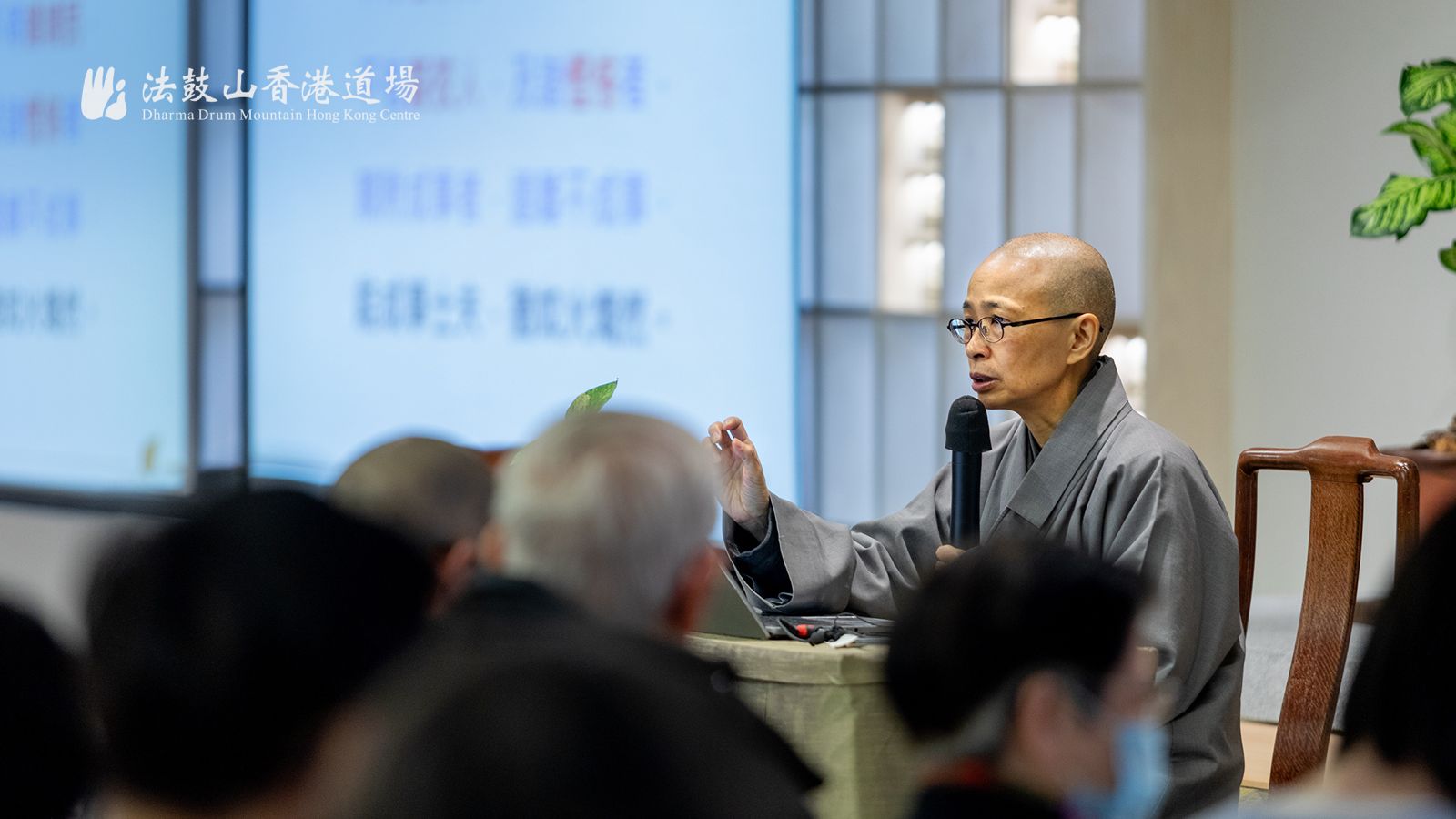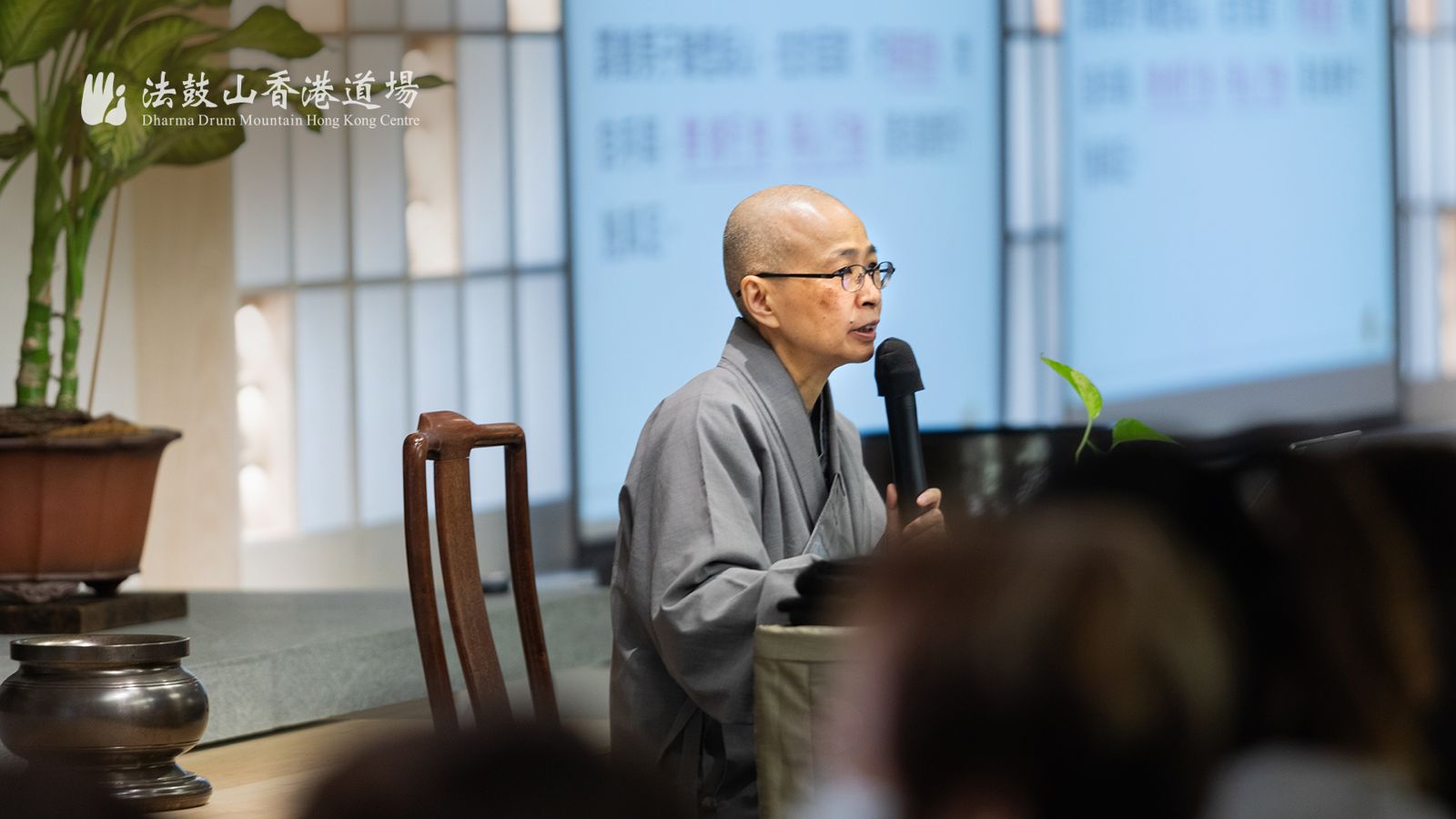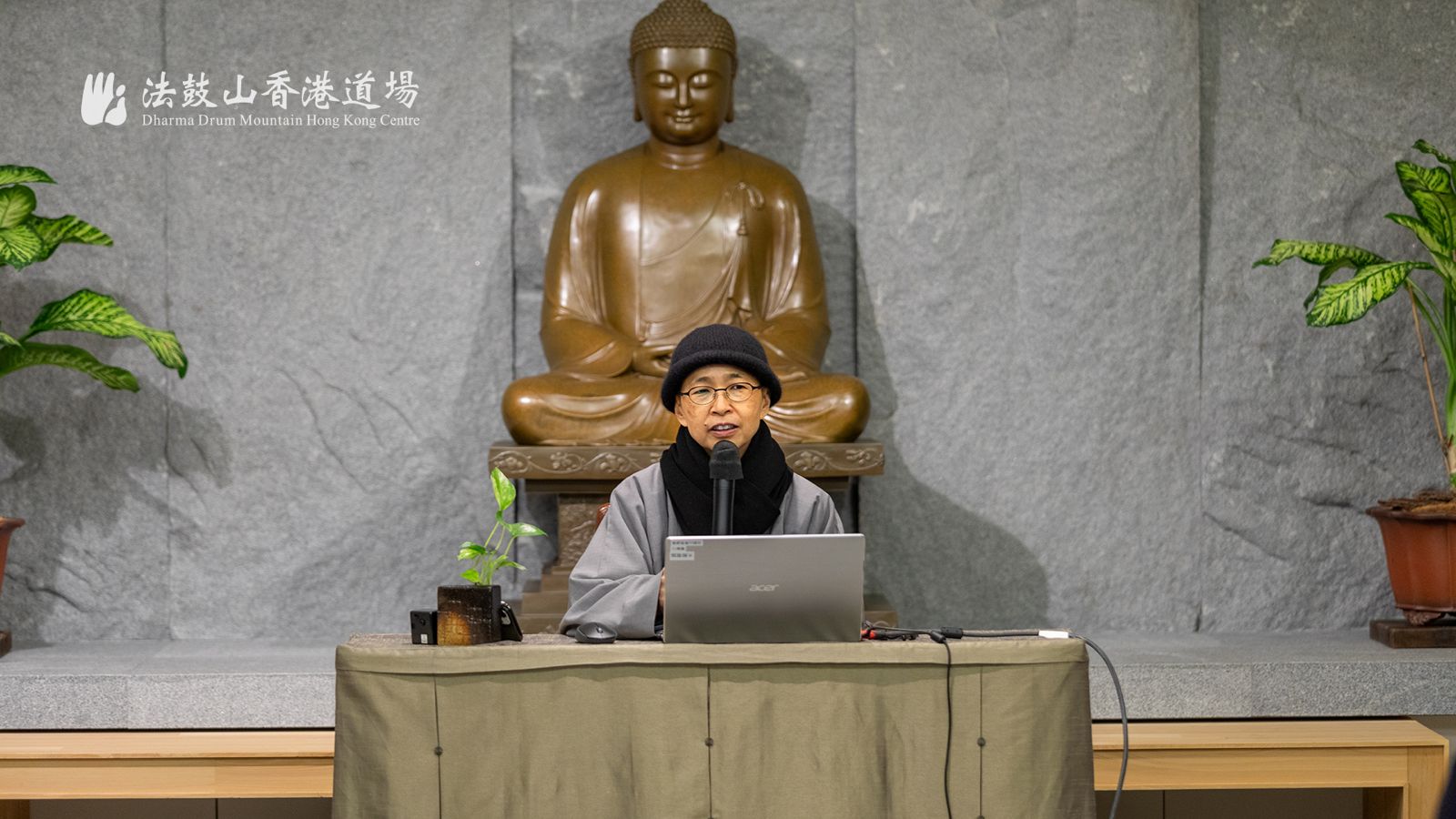DDM Global News
Ven. Guo Yi on the "Reality and Transcendence of Buddhadharma" after a Decade Away from Hong Kong

After her decade long absence, Venerable Guo Yi (果毅法師), Managing Director of Dharma Drum Mountain (DDM)'s Public Buddhist Education Center (普化中心) and Director of Nung Chan Monastery, revisited DDM Hong Kong Centre to give Dharma talks at the two-day lecture "Reality and Transcendence of Buddhadharma" (佛法的現實與超越) on March 2nd and 3rd. Using the Āgama Sutras and other early Buddhist scriptures, the Venerable explained how to interpret and apply the wisdom in the scriptures to reduce our vexations and disentangle ourselves from illusory thoughts through the daily questions and answer sessions that the Buddha held with his disciples and the laity.
The Venerable also shared Master Sheng Yen's book "Orthodox Chinese Buddhism," which is written in a Q&A format as well. The 70 entries in the book are intended to answer some of the questions that the general public or Buddhists have about Buddhism and Buddhadharma, as well as build up their faith in the practice after resolving their doubts.
The two-day lecture contains five topics, exploring how to take daily realities into account while engaging in Buddhist practice to attain liberation. Starting with economic and financial management, Ven. Guo Yi explained that its basic principle is to use our own skills to make a living and consciously distribute wealth to achieve balance between one's income and expenditures. Regarding interpersonal relationships, the Venerable mentioned the Master's "Six Ethics of the Mind" campaign, which starts with ourselves rather than asking others to meet our own expectations. The purpose of serving others is not in exchange for more, but for doing our own part and respecting one another to achieve harmony with ourselves and others.
 When it comes to the attitude of coping with illness and suffering, Ven. Guo Yi explained that from Buddhist scriptures, we know that the Buddha peacefully accepted aging and sickness. We should eat the right food at the right time, leave the illness to the doctors, and heal ourselves with Buddhadharma. With firm faith in the Three Jewels—the Buddha, the Dharma and the Sangha—we can remain mindful and practice equanimity and tolerance in the midst of suffering.
When it comes to the attitude of coping with illness and suffering, Ven. Guo Yi explained that from Buddhist scriptures, we know that the Buddha peacefully accepted aging and sickness. We should eat the right food at the right time, leave the illness to the doctors, and heal ourselves with Buddhadharma. With firm faith in the Three Jewels—the Buddha, the Dharma and the Sangha—we can remain mindful and practice equanimity and tolerance in the midst of suffering.When facing death, we should keep the Four Kinds of Indestructible Faith (catudhammapariyāyaṃ) in mind at all time, practicing earnestly and actively performing good deeds . When such practice becomes so merged into our lives that it does not retrogress, even if we encounter unexpected incidents that evoke our negative thoughts, the practice we have developed in our daily life will have the power to lead us to benevolent destinies.

As for the cultivation of wisdom and blessings, the Venerable explained that both of them are equally important since they affect each other. We need to develop the wisdom of right view to clearly distinguish whether our habitual thinking is in accordance with the Buddhadharma. Through cultivating wisdom and blessings, we accumulate the provision for our practice. Even when we receive karmic retributions, our day-to-day cultivation will help to reduce our vexations and sufferings. At the end of the lecture, the Venerable also encouraged everyone that, after learning the Dharma, we should also contemplate and practice it, in order to truly internalize its wisdom, thereby leaving suffering behind and attain happiness.
Original text written in Chinese by Mei-ji Chan (陳美芝)
Photos provided by Chyu-sek Tam (譚柱石)
Translated by Siang-ling Li
Edited by Keith Brown, James
